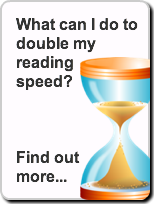I was interested to read the results of a recent survey carried out by GMX into the use of email in the UK workplace.
The headline conclusion was depressingly familiar: over a third of workers have been offended or upset after misinterpreting the tone or language used in emails received from colleagues.
Communicado: Business Communications Blog
The parallels between email writing and report writing
Posted by Andrew Jackson on Jul 31,2009 @ 02:40 PM
Topics: Report Writing
If you buy into the idea of writing reports in a more modular way – and I hope you will, there are many, many advantages to be gained from this approach. Here are just a few:
Increased readability
In a previous post, I mentioned how your readers will thank you if you start writing in shorter sentences. The same is true for writing reports in modular units or paragraphs. These shorter, better focused units are a pleasure for your audiences. You are only asking them to think about and process one idea at a time.
Going back a few years, Jakob Nielsen did some tests around this. He discovered that overall it was possible to increase readers’ ability to quickly skim read and comprehend a piece of text by a staggering 125%!
Increased ‘finadability’
I use ‘findability’ because if I use the word ‘accessibility’, people think I’m referring to issues for readers with some kind of disability. Increasing accessibility for such an audience is, of course, a no brainer. However, we seem to forget that making it easier for everyone to find a small piece of text within a bigger whole is also a no brainer.
How often have you spent ages wading through a long report trying to find a vital paragraph buried somewhere in the middle of page 176! As I suggested previously, dramatically increasing your use of meaningful headings reduces this kind of audience frustration to a minimum.
Keeps you on track
The biggest danger for any writer of pretty much anything is that they will lose the plot part way through; or get carried away and provide too much detail; or get bored and not provide enough detail for their intended audience.
There’s no better way to keep your report writing on track and avoid all the dangers just listed by writing short modular units. If you are thinking (and planning) modular the whole way through the writing process, it’s much harder to screw up.
Structuring and organising content is easier
If you are creating an outline structure using modular units of content, it makes the overall planning and structuring much easier. It also makes experimentation with and revision of that structure much easier, too.
This might sound counter-intuitive. After all, most writing processes teach a top-down approach. But if you start with a bunch of smaller units (identified through good audience analysis) it’s actually easier to build these smaller units into bigger wholes rather than the other way around. You’ll almost certainly get a more audience-focused result, too. Top-down structures are much more likely to be writer-focused.
Writing with colleagues is easier to manage
You may be one of the many people working with colleagues in a professional report writing capacity. If so, you are probably producing relatively long, complex pieces of content. This can often be a frustrating process for all parties concerned. How do you pull together the different bits of content that each person has written?
First of all, planning and writing in modular units makes it much easier to assign specific, targeted content to specific people. Second, pulling together those units into a meaningful sequence is also much easier . Finally, this approach provides more flexibility to experiment with alternative structures.
Topics: Report Writing, Communication skills
Report writing: is there an alternative to the paragraph?
Posted by Andrew Jackson on Jul 8,2009 @ 10:01 AM
If you stop and think about what we might’ve learnt at school in relation to writing down our ideas, it’s amazing that we ever manage to master the art of report writing, or indeed any other kinds of business communication.
Of course, the basic units of information we all learn to construct are sentences and paragraphs. But when you try to define exactly what a paragraph is, you begin to realise we are talking about a fairly poorly-defined unit of information.
Probably the rule of thumb that we all learnt at school was when we start a new topic, we should begin a new paragraph. Now this is a good starting point, but we actually need a lot more help than this. What about if your topic is particularly long and complex. Is it really okay to write a paragraph that’s 20 sentences long? Surely not. In fact, if you ask anyone how long a paragraph should be, no-one can really give you a definitive answer.
So, can we be more precise and more effective? Does the paragraph need replacing with a different unit of information? Instead of thinking about a somewhat ill-defined unit of information, how about one that is clearly defined, has some very clear guidelines and is, essentially, a modular stand-alone unit?
If you think that sounds like a promising idea, you might be wondering what we would need to do to achieve such a thing. Not that much, actually. Here are our top tips for writing concise, modular units of information. And by the way, they aren’t just some pie-in-the-sky, fanciful notion. Applying them really does work:
One idea or purpose at a time
Sounds simple doesn’t it, but examine most paragraphs and they usually contain one or more ideas or purposes. Finished with one idea? Stop there and start a new unit.
Measure how long each unit is
I’m not talking about rulers, calculators or compasses here. What I am talking about is having a pre-defined upper limit that you aim not to go beyond. I would recommend using 7 as the magic number. Put simply, anything more than about 7 sentences long is probably too long and too much for your audience to comfortably process.
Got lots you need to say? Examine your paragraph carefully, you’ll probably be amazed to find there are several ideas or purposes lurking in that great long paragraph you were about to write.
Keep your sentences short
Within each unit, it’s really important to keep sentences short. This really cuts down fluff and forces you to express your ideas more precisely. By the way, your audiences will really appreciate you doing this.
Increase advance organisation
You may not want to give each and every unit a short, meaningful heading (although research indicates this is a highly effective way of increasing readability). But you ought at least to consider increasing your use of headings. Avoid the common mistake in most long reports which usually only contain the bare minimum of headings.
Topics: Report Writing









